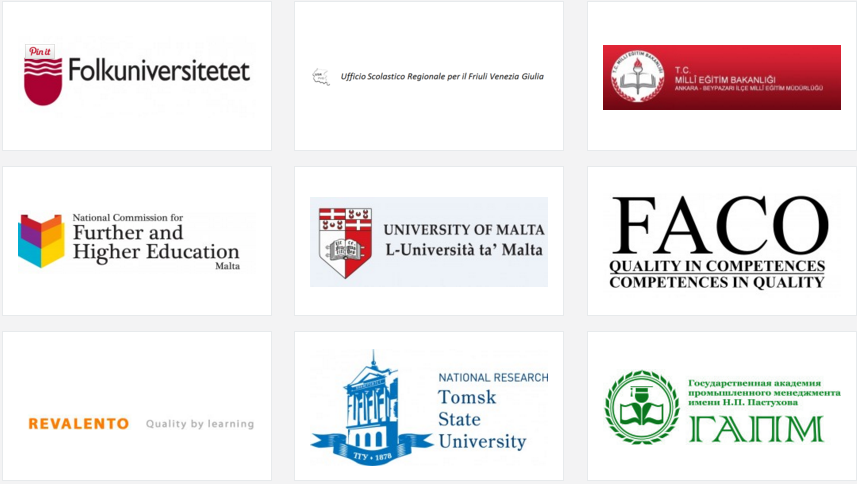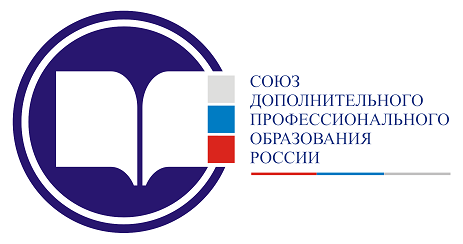Expanding the quality ‘spirit’ of VET (Q&VET) - Q&VET
Project realization terms: 2012 – 2015
Project description
Objectives
Motivation and involvement of stuff play an important role in the quality assurance, but at this moment these parameters in VET are not being sufficiently addressed – as a result now it exists a gap between the policy of education quality management and effectiveness of the quality assurance system, the influence of this system on learning outcomes. The experience of European organizations and recent researches have found the need for a Guide that can help VET organizations leaders to motivate and involve their teachers in active participation in quality initiatives. The development of this guide has become the main goal of the project “Expanding the quality of ‘ spirit ‘ of VET (Q&VET)”. The project aims to explore ways to bridge the gap between the policy of education quality management and effectiveness of the quality assurance system, the influence of this system on learning outcomes.
Tasks
The second QALLL (quality assurance in Vocational Education and Training (VET) and Adult Education, (AE) conference 28th November 2011 in Berlin, gathered education professionals and experts, project contractors of the European Lifelong Learning Programmes Leonardo da Vinci and Grundtvig, policy makers, national authorities, social partner representatives and other stakeholders interested in quality assurance in VET and AE.
The result of workshops at the conference showed that independent of what quality model a provider use, it will not improve the quality of learning and organisation unless the staff are informed, motivated and engaged in the planning, implementation, evaluation and review process of Quality Management. The reason behind this vital conclusion by practitioners, policy makers and researchers at the conference, is that there seem to be two cultures present:
- A ‘rationalist bureaucratic culture’, which is hierarchical, structured in time and activity. Accountability is achieved through detailed job descriptions, performance indicators, supervision, line management and performance-based contracts.
- An ‘autonomous professional culture’: selforganized, self- and peer-assessed, collegial decisionmaking. This is culture embraced by teaching staff in VET.
Many teachers were also of the opinion that none of the institute quality initiatives was directed at the process of teaching and learning and result is not reaching the classroom and the learners.
If one considers knowledge in Quality models, indicators and evaluation methodology as the “HARD” skill, the guidelines for VET-leaders can be considered as the necessary and needed “SOFT” skill in quality initiatives.
Participants
- Folkuniversitetet (Uppsala, Sweden) (the project coordinator)
- Beypazari District Directorate For National Education (Beypazari, Turkey)
- Quality Austria – Trainings, Zertifizierungs und Begutachtungs GmbH (Wien, Austria)
- Republican Institute for Vocational Education (Minsk, Belarus)
- Pastuhov State Academy of Industrial Management (Yaroslavl, Russia)
- Institute of Economics, Management and Law (Kazan, Russia)
- Tomsk State University (Tomsk, Russia)
- Ministero dell’istruzione (Trieste, Italy)
- Revalento (Tilburg, Netherlands)
Expected outcome of the project (recommendations for the heads of the VET organizations) will help them to explain and show to their employees that quality initiative creates a common vision of education and teaching, causes more enthusiasm for teaching and learning, encourages teachers to self-evaluation and reflection of their teaching methods, leads to greater cohesion and cooperation between teachers, encourages them to be more modern, innovative and flexible, increases the power and responsibilities of teachers and, consequently, their satisfaction, leads to constantly raising of their professional skills, creates a team of specialists involved in the initiative. This guide will set out the guidelines that would support the VET leadership institutions in developing a collaborative approach to implementing of quality initiatives, regardless of the chosen model of quality.
Theoretical guidelines will be supplemented with practical advices and best practices of project participants and other European countries.
“Pathway from EQAVET to NQAVET (NQAVET)”

The Institute of Distance Education of TSU takes part in the European research project “Pathway from EQAVET to NQAVET (NQAVET)” which is a logical continuation of the project “Expanding the quality ‘spirit’ of VET (Q &VET)” and has been funded with support from the European Commission.
The project addresses one of the major problems regarding elaborated Quality models and methodologies for VET within the framework of LLP-program, namely the difficulty to broaden and make the results national. In most cases the elaborated quality model or approach is confined in a limited number of providers (the project partnership organizations) or at the best case at regional level. Very seldom they find their way to a national level in order to be disseminated and used by a wide range of providers in the countries of project partners.
Considering that some of these projects are nominated as best practice by European Union network for “Quality Assurance in Lifelong Learning with a Focus on Vocational Education and Training and Adult Education” QALLL network, they still miss to get approval at national level in EU-countries. According to QALLL here are about 39 projects which are recommended as good practices. Looking at all the other 39 projects, the majority of these projects experiences find it difficult to be mainstreamed because of lack of inclusion of national authorities and thereby the needed legitimacy.
Project realization terms: 2013 – 2016
Project description
Objectives
The goal of the project is to increase transparency in European VET by enhancing development of National Quality Guidelines/recommendations and approaches for VET (NQAVET) for provider level based on EQAVET.
The aims of the project are to:
- Develop national guidelines/recommendations regarding Quality in VET based on EQAVET in 4 pilot EU countries by national and regional authorities by
– adapting and/or developing an approach to the EQAVET Recommendation which is fit for purpose and tailored to national needs and requirements, promoting the development of a culture of quality improvement,
– elaborating adequate operational measures to implement the EQAVET recommendation and developing national Quality Assurance Frameworks (NQAF) for VET
- Elaborate recommendation for VET authorities (national/regional) in other member states based on experiences from above pilots for supporting them in their effort for development of their own national Quality guidelines/recommendation for VET based on EQAVET.
Participants
| Educational organizations from Sweden, the Netherlands, Italy, Turkey and Malta are participating in the project. Russia is represented by two participants: Pastukhov State Academy of Industrial Management from Yaroslavl and Tomsk State University.The project is coordinated by Folkuniversitetet (Uppsala, Sweden). |  |
Expectations
The project is the transition from the European to the national VET. It is associated with the development of a framework based on the European concept of professional qualifications and methods of forming cross-border system of certification of professional qualifications.
The results of the project are:
Development of national guidelines/recommendations regarding Quality in VET based on EQAVET in 4 pilot EU countries by national and regional authorities by adapting and/or developing an approach to the EQAVET Recommendation which is fit for purpose and tailored to national needs and requirements, promoting the development of a culture of quality improvement elaborating adequate operational measures to implement the EQAVET recommendation and developing national Quality Assurance Frameworks (NQAF) for VET Elaboration of recommendation for VET authorities (national/regional) in other member states based on experiences from above pilots for supporting them in their effort for development of their own national Quality guidelines/recommendation for VET based on EQAVET.
QM&CQAF - The expansion of the EU-approaches to providing the partner-countries higher education quality assurance ''Expanding Quality Assurance''
QM&CQAF is an international collaborative project of successful and proved educational quality assurance solution adaptation and deployment in the partner countries’ educational institutions. . The project impact to the partner countries’ educational systems is that the harmonized higher education quality assurance approach will provide the mutual recognition of the higher education outcomes and cross-border specialists mobility.
Project realization terms: 2015 – 2018
First transnational meeting of the QM&CQAF project (methodical seminar)
Progress and results of the 1st stage of the project QM&CQAF
Project description
Objectives
The general objective of this project is the adaptation of the educational quality assurance model successfully used in European Union as well as its positive experience and practices promotions in order to provide the common higher education assurance. The general understanding of the higher education quality process and using the harmonized approaches and estimation criteria is quite important for European integration. This project considers the close collaboration of EU- and partner countries’ educational and researching institutions.
Tasks
- CQAF conception adaptation to the Croatian, Russian and Belarusian educational systems peculiarities
This is the collaborative research to be performed by all the Consortium participants including the research of quality model CQAF appreciation in the partner countries and its adaptation conception elaboration.
- Educational quality assurance QM&CQAF model elaboration based on adapted CQAF conception and 2015 version ISO 9001 standards
The solution is about test QM&CQAF model elaboration based on adapted to national peculiarities CQAF model with due regard to anticipated quality management standards ISO 9001:2015 changes. Promotional and advertizing materials for tutors, specialists and students will be also elaborated.
- Croatian, Russian and Belarusian university tutors, teachers and specialists training for using and distributing QM&CQAF model
The full training of tutors (teachers and specialists) and students will be held in the 6 QM&CQAF model recipient-countries institutions.
- QM&CQAF model approbation to the partner countries’ economic systems
The solution is about practical embracing QM&CQAF model by six educational institutions in order of HEI and educational quality assurance and management. During the six months there will be monitoring (internal auditing) and processes indicator estimation (including QM&CQAF model indicators self-estimation). The Network participants will discuss the analysis outcomes and elaborate the corrective activities (if applicable).
- Holding the QM&CQAF model dissemination impacts and outcomes analysis in partner countries’ universities
Every educational institution will perform the analysis of QM&CQAF model adaptation outcomes, hold a corresponding meeting and prepare the reports with outcomes indicators.
- Educational quality assurance QM&CQAF model usage full guide elaboration
There will be the QM&CQAF model using Full Guide prepared in terms of six educational organizations based on the research results of educational quality assurance national peculiarities. The recommendations elaboration will be performed in two steps. The first variant of the recommendations will be elaborated alongside with the guidance materials for recipient universities. The second will contain the model using experience analysis and higher education quality assurance best practices description.
Activities
- Research of quality model CQAF appreciation in the partner countries
- The exploitation concept CQAF quality model elaboration in the partner countries
- Resource and promotional materials elaboration
- Training the tutors in the CQAF model recipient-countries universities
- Higher education quality model Guide elaboration and discussion on the national level
- CQAF model exploitation processes support and monitoring in the recipient-countries
- Additional research of the CQAF quality model appreciation in the partner countries and deliverables according to Quality Management principles
Participants
- Revalento (the Netherlands) and Folkuniversitet (Sweden) are the EU-representatives that developed and popularized CQAF model during recent projects and also possess the methodology and experience of the CQAF model dissemination.
- University North, the grant holder (the Republic of Croatia); Ivanovo State University, Tomsk State University (the Russian Federation); Belarus State Economic University (the Republic of Belarus) are to embrace the CQAF model, train the tutors and specialists and familiarize students and postgraduates with the quality management and CQAF model. They are also responsible for CQAF model distribution at national level universities.
- Pastuhov State Academy of Industrial Management (the Russian Federation); Republican Institute for Vocational Education (the Republic of Belarus) are partner countries’ educational institutions responsible for university managers and tutors advanced CQAF model training to collaborate with the partners of the 1st group. They are to perform methodological support of the 2nd group universities as well.
Expectations
- The higher education quality assurance QM&CQAF model adapted for national peculiarities and approved in terms of partner countries’ universities
- Networks participants being motivated and trained for QM&CQAF model distribution in other countries
- Full QM&CQAF model guide containing its description, application methodology, adaptation recommendations, outcomes indicators of model’s deployment efficiency
The main project achievement indicators will be:
- The Model being adequate to objectives and activities of the project, including conception, processing description and application methodology
- The national levels HEIs coverage


